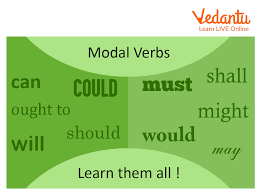
Common Modal Verbs and Their Meanings
Introduction
Effective communication is the cornerstone of successful interaction, and mastering the nuances of language is essential for clear and concise expression. Modal verbs, a subset of auxiliary verbs in English, play a pivotal role in conveying shades of meaning and intention. In this blog post, we will explore common modal verbs and their meanings, equipping you with the tools to enhance your English language skills.
Common Modal Verbs and Their Meanings
Can
Meanings:
Expresses ability or capability.
Indicates possibility or feasibility.
Example:
“I can swim.”
Could
Meanings:
Suggests past ability or capacity.
Expresses a polite request or possibility.
Example:
“Could you please pass me the salt?”
May
Meanings:
Indicates permission.
Expresses possibility or likelihood.
Example:
“May I borrow your book?”
“It may rain later this evening.”
Might
Meanings:
Suggests a possibility, often a remote one.
Can be used for polite suggestions or requests.
Example:
“She might attend the conference.”
“Might I suggest we meet tomorrow?”
Shall
Meanings:
Expresses future actions or intentions, often in formal or old-fashioned contexts.
Can be used to seek advice or make suggestions.
Example:
“Shall we meet at 2 PM?”
“Shall I open the window?”
Should
Meanings:
Advises or recommends.
Indicates obligation or probability.
Example:
“You should study for the exam.”
“It should stop raining by evening.”
Will
Meanings:
Expresses future actions, intentions, or certainty.
Example:
“I will call you tomorrow.”
Would
Meanings:
Expresses future-in-the-past.
Describes habitual actions in the past.
Makes polite requests or offers.
Example:
“He would always help his neighbors.”
“Would you like some coffee?”
Must
Meanings:
Indicates necessity, obligation, or strong probability.
Example:
“You must complete your assignment.”
“It must be freezing outside.”
Ought to
Meanings:
Expresses advice or moral obligation.
Example:
“You ought to apologize for your behavior.”
“We ought to help those in need.”
Using Modal Verbs Effectively
Understanding the meanings and functions of these common modal verbs can significantly enhance your ability to communicate in English. Here are some tips to use modal verbs effectively:
Consider the context: Choose the appropriate modal verb based on the specific context and the intended meaning you want to convey.
Be aware of formality: Some modal verbs, like “shall,” are more formal and are often used in professional or written communication. Others, like “can” or “could,” are suitable for both formal and informal contexts.
Practice: Engage in conversations, write sentences, and read texts to reinforce your understanding of how modal verbs are used in different situations.
Pay attention to nuances: Modal verbs can convey subtle differences in meaning. For instance, “must” implies a strong obligation, while “should” suggests a milder recommendation.
Seek feedback: Ask native speakers or language instructors for feedback on your use of modal verbs to improve your proficiency.
Read more information about What is a modal verb with example. Click here.
More-erahalati
Conclusion
Modal verbs are valuable tools for effective communication in English. By grasping their meanings and functions, you can express yourself more precisely, whether you’re asking for permission, giving advice, making suggestions, or indicating possibilities. As you continue to practice and refine your use of modal verbs, you’ll become a more confident and articulate communicator in the English language.



